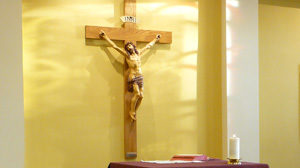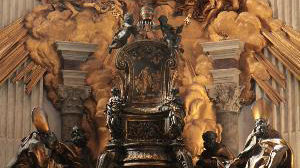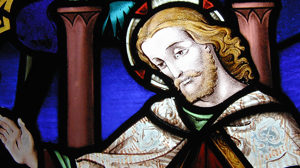Scripture:
Reflection:
With Ash Wednesday just a day away, it seems Sirach provides some valuable guidance for planning our Lenten journey.
What should this Lenten journey look like in contrast to our daily journey with Jesus? All year long we pray, worship, help those in need and generally try to live how the gospel call us to live.
So, what will Lent be like for us this season? Sirach encourages us to work to alleviate injustice, to give to those in need, to observe the commandments, to name just a few. Furthermore, we are to do all of these things and more with a cheerful countenance! Simple, right!?
Our parish Lenten theme for this year is: COME ENCOUNTER CHRIST!
In addition to prayer, fasting and almsgiving, we are inviting people to take time to Walk the Way of the Cross and to enter physically, emotionally and spiritually into how this experience affected everyone who made this journey with Jesus, including Jesus himself. There will be reflection questions available at each station for individuals or small groups to spend time reflecting on how our lives are often changed in our encounters with Christ. For those who wish to attend there will be more formal stations offered each week during Lent also.
Jesus reminds us in the gospel today, that anyone who sacrifices on behalf of the gospel will be greatly blessed! We are all called to be proclaimers of the good news. May our Lenten journey be a time of encountering Christ not only in our prayer and fasting, but also as we rally against injustice, feed the hungry, house the immigrant and refugee, petition our government and church leaders to work for equality for all and most especially, LIVE as Gospel people!
Happy Lent! Keep Smiling!
Theresa Secord is a Pastoral Associate at St. Agnes Parish, Louisville, Kentucky.







